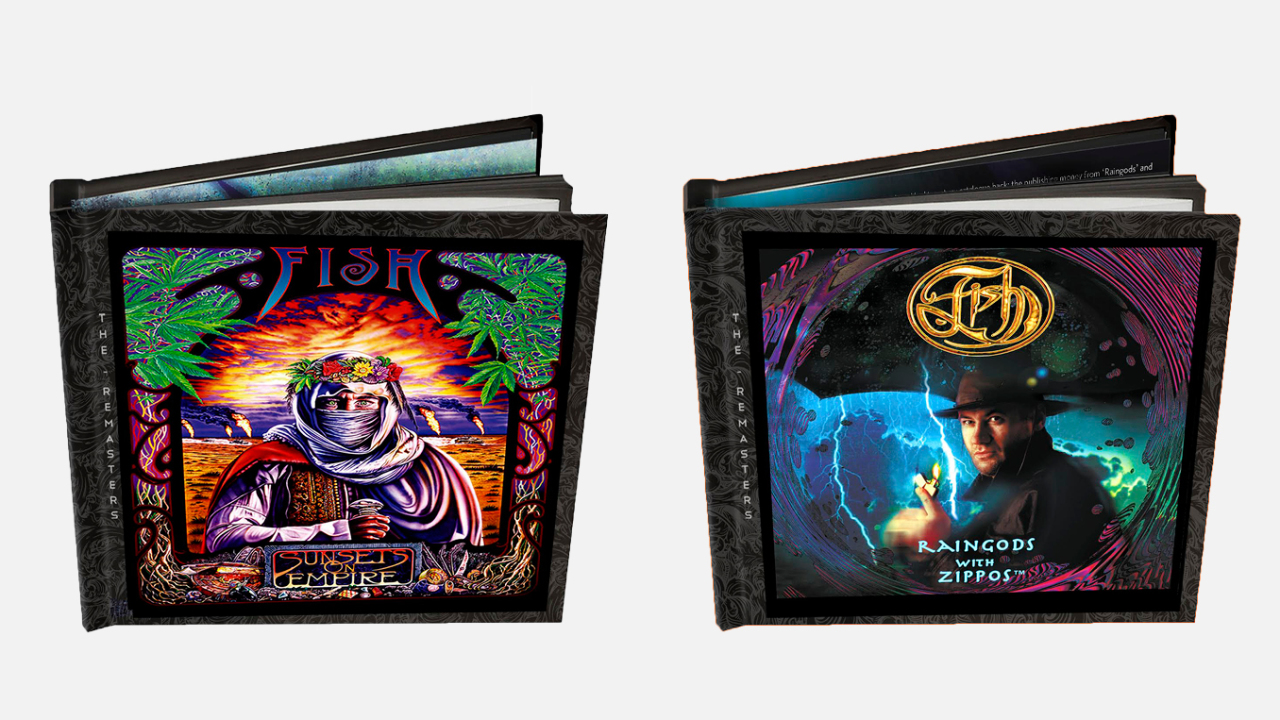“My first impression was that he looked like a student from the 70s and had a presence and quiet wisdom that belied his age,” writes Fish in the extremely detailed booklet accompanying the three-disc remaster of 1997’s Sunsets On Empire.
He’s talking about the young Steven Wilson, who co-wrote and produced the album. It was one of his first high-profile gigs outside No-Man and Porcupine Tree and it’s safe to say he did a sterling job. So did Fish, but this didn’t prevent his fourth fully fledged solo album from flopping, and hitting his finances hard.
Perhaps too much has been said and written – by Fish – of his turn-of-the-millennium bank account. Taking the album on its own merits now, it’s a varied, imaginative work. As ever, his lyrics balance intimate personal confessions with broader issues, such as urban decay and the intrusion by the government into our lives. Goldfish And Clowns details an extramarital affair that doesn’t quite go all the way; Jungle Ride is successfully funky. Maybe the overlong, riff-heavy opener The Perception Of Johnny Punter turned some listeners off before they found what riches resided after it. The pairing of Fish’s candour and wordplay (is that rapping?) and Wilson’s rhythms and reveries merits critical rehabilitation.
Fish’s intensity and his theatre keep these albums aflame.
Two years later, Raingods With Zippos (there’s a title that hasn’t aged well) has Wilson playing guitar on several tracks, with Elliot Ness producing. Fish co-wrote the album with a pool of people – his notes (“notes” seems an inadequate word to cover his mini-novel of total recall) tell us that one Rick Astley was among them. The album gels startlingly well, from the gradual swell of Tumbledown to the acoustic Incomplete. There’s a snarling cover of Alex Harvey’s Faith Healer, and on Tilted Cross, Fish deals with the subject of landmines in Bosnia.
It’s the 25-minute suite Plague Of Ghosts that gives the album (also a three-disc remaster) its scale and focus. Six songs are linked, blending melody and mood with that flair for drama at which Fish excels. The angst about guilt, loneliness, memories and self-pity may be autobiographical, but for fans, such honesty transcends narcissism: he’s an everyman figure, seeking peace and release.
Here’s something odd that occurs as you listen to Plague Of Ghosts again: it bears similarities, in phases, especially early on, to Kate Bush’s Aerial (of 2005). Fish possibly hasn’t been given due credit for his ambition and diverse sonic palettes.
If you’re a Fish-ophile, you’ll relish swimming in the vast ocean of demos, instrumentals and live tracks that engorge these lovingly designed packages. Yet it’s his intensity and his theatre that keeps them aflame.

